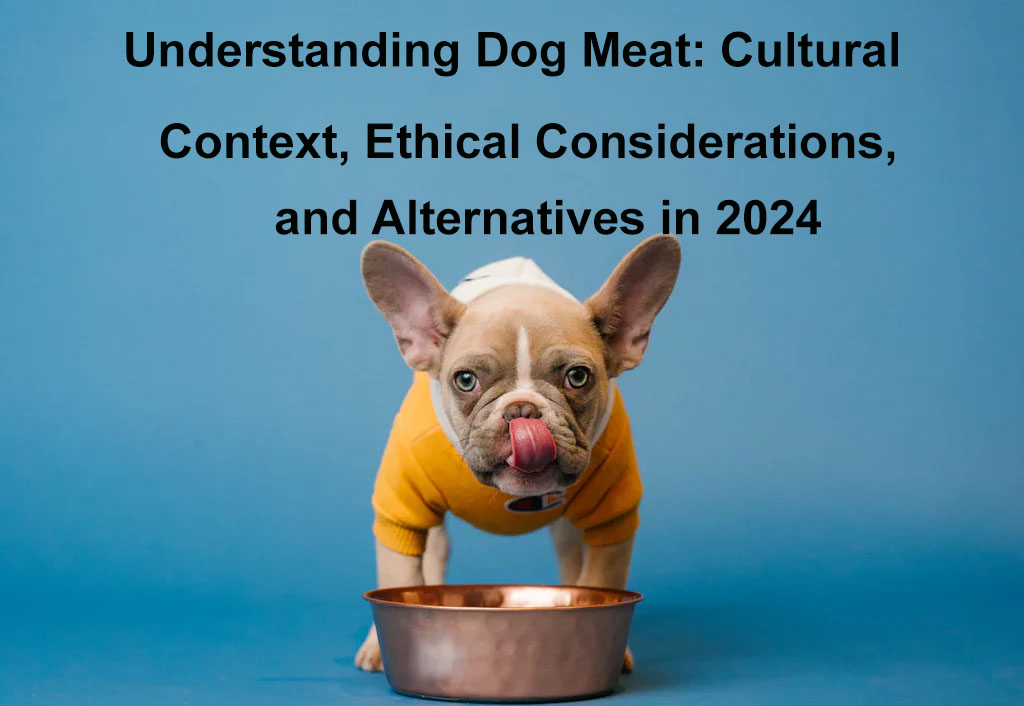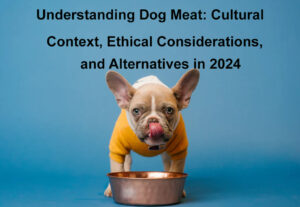The consumption of dog meat is a controversial topic that evokes strong emotions across different cultures. While some communities view it as a traditional practice, others see it as unethical and unacceptable. In this article, we will explore the cultural context of dog meat consumption, ethical concerns, health implications, and potential alternatives that can foster a more compassionate approach to animal welfare.

The Cultural Context of Dog Meat Consumption
Historical Perspective
Dog meat has been consumed in various cultures for centuries. In some regions, it is regarded as a delicacy and is deeply rooted in local traditions. For example, countries like South Korea, China, and Vietnam have specific festivals and culinary practices centered around dog meat. Historically, it was seen as a source of sustenance, especially during times of scarcity.
Read Also:Ibomma Telugu Movies
Contemporary Practices
In recent years, the consumption of dog meat has faced increasing scrutiny. Globalization and the rise of animal rights movements have influenced public opinion, leading to a decline in the acceptance of dog meat consumption. For many people, dogs are seen as companions and family members rather than food sources. This shift in perspective has sparked debates about cultural traditions versus evolving ethical standards.
Ethical Considerations

Animal Rights
One of the primary arguments against dog meat consumption centers around animal rights. Dogs are known for their loyalty and companionship, and many people believe that these qualities make them unsuitable for food. Advocates argue that dogs deserve to be treated with kindness and respect, aligning with the growing recognition of animal sentience.
Cruelty and Treatment
Another significant concern is the treatment of dogs raised for meat. Reports of inhumane practices in some countries have fueled outrage among animal welfare advocates. Dogs are often kept in poor conditions, subjected to stress and suffering, which raises ethical questions about the morality of consuming dog meat.
Cultural Sensitivity
While advocating against dog meat consumption, it is essential to approach the subject with cultural sensitivity. Many individuals in cultures where dog meat is consumed have strong emotional ties to their traditions. Engaging in respectful dialogue can help bridge understanding between differing viewpoints and foster positive change.
Health Implications

Safety Concerns
The consumption of dog meat raises health concerns, particularly regarding food safety. Dogs can carry diseases that may be transmitted to humans, such as rabies and parasites. Additionally, improper handling and preparation can lead to foodborne illnesses. These risks contribute to the argument against dog meat as a food source.
Nutritional Value
From a nutritional perspective, dog meat does provide protein and other nutrients, but it is essential to consider the ethical implications and health risks associated with its consumption. There are numerous alternative protein sources available that are safe and ethically produced.
Alternatives to Dog Meat Consumption
Plant Based Proteins
As awareness of animal welfare grows, many people are turning to plant based diets. Legumes, nuts, seeds, and whole grains offer excellent sources of protein without the ethical concerns associated with animal consumption. Options like lentils, chickpeas, quinoa, and tofu can provide nutritional benefits while promoting a compassionate lifestyle.
Read Also: The Best Basenji Yodels – Best Guide 2022
Sustainable Meat Sources
For those who still wish to consume meat, opting for sustainably sourced and ethically raised animals can be a viable alternative. Look for certifications that indicate humane treatment and environmentally friendly practices. This approach supports animal welfare while allowing consumers to enjoy meat responsibly.
Education and Awareness
Raising awareness about the issues surrounding dog meat consumption can lead to more informed choices. Education can help individuals understand the implications of their dietary habits and encourage them to explore compassionate alternatives.
Changing Attitudes and Movements

Advocacy and Campaigns
Animal rights organizations and activists are working tirelessly to combat the consumption of dog meat and promote humane treatment of animals. Campaigns aimed at raising awareness and providing education have gained traction in recent years, leading to shifts in public perception.
Government Regulations
In some countries, government regulations have been enacted to ban the consumption of dog meat. These legal measures reflect changing societal attitudes and the increasing recognition of dogs as companions rather than livestock. Advocacy efforts continue to push for more stringent regulations globally.
Cultural Shifts
As global interconnectedness increases, cultural exchanges are also evolving. Many people are adopting pets and viewing them as family members, which contributes to changing attitudes toward dog meat consumption. Social media platforms have played a significant role in spreading awareness and encouraging compassion for all animals.
Conclusion

The topic of dog meat consumption is complex and multifaceted, encompassing cultural, ethical, and health considerations. While it has historical significance in certain cultures, growing awareness of animal welfare is leading to a shift in public attitudes. By exploring alternatives and fostering respectful dialogue, we can work toward a more compassionate approach that honors the bond between humans and animals.
Read Also: When Is An Aussiedoodle Full Grown – Best Guide in 2022